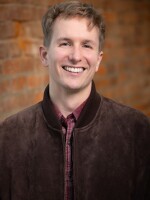Theologian, author and activist Benjamin Chavis spoke Wednesday at Wake Forest University's environmental justice summit in Winston-Salem. Chavis was wrongfully imprisoned in 1972 as a member of the Wilmington Ten, a group of civil rights activists, and went on to coin the term “environmental racism” after his release, when he turned to fighting the unequal impact of pollution.
He recently published a book on the trans-Atlantic slave trade. WFAE’s Zachary Turner sat down with Chavis during the summit to talk about the current political climate around environmental justice.
This interview has been edited for concision and clarity:
Zachary Turner: The federal government is targeting grants, organizations, departments, and more that wear the scarlet letters of DEI without that language of inclusion and equity. Are these institutions able to do the work of promoting environmental justice without that language?
Benjamin Chavis: The answer is yes. It's unfortunate that that language has become a buzzword — where people use that language to retreat, withdraw, absence themselves rather than involve themselves. However, I think that's only temporary. I think the life-changing conditions in our communities are not going to change, no matter what you call it. You can call it diversity, equity, inclusion — you can call it some other term.
The quality-of-life issues are not going to change unless we work hard to ensure that every community has environmental justice; that every community has good air to breathe; every community has good, clean water, uncontaminated water to drink; and every community has food that's not contaminated with these cancer-causing toxins.
Turner: You recently published a book on the trans-Atlantic slave trade, and even if the environmental justice movement started in the 1980s in Warren County, these [environmental] issues predate that. In the research you conducted for your book, did you come across any of the roots of environmental racism or early examples of how it played out?
Chavis: As I did research for our book on the transatlantic slave trade, I also found evidence that the targeting of communities of color — the targeting of certain groups — was not just for enslavement, but for deliberate exposure to hazards.
Turner: Did you uncover any early narratives or examples of how marginalized groups were suffering disproportionately because of their environment?
Chavis: Yes, in a lot of the extraction of minerals, going back centuries, in communities of color — while the minerals were extracted, nothing was done to deal with the impact, the public health impact of these communities around all the extraction. It can be petrochemical, it could be diamonds, it could be uranium, it could be copper. If you look at a lot of these communities, they've suffered because of environmental exposure. This has been going on for centuries.
Turner: You have been through so many experiences that might have turned somebody off of this path if they weren't so tenacious. And yet, you've continued to do the work that you do. What motivates you to stay and keep fighting?
Chavis: Well, there are several factors. Number one: my family. I come from a family of civil rights leaders … theological leaders … medical leaders. And so, I was raised up in an environment where fighting for freedom, justice and equality is part of my existence.
Secondly, I had great mentors — the Reverend Martin Luther King Jr., C.T. Vivian, Andy Young, Wyatt Tee Walker, Fred Shuttlesworth. I could go down a long list. So I was a beneficiary of being in their presence. That's why I spent a lot of my time today trying to impart some of those learnings to the next generation of leaders, and I'm encouraged.
I see a lot of young people around the country who, not only want to be involved but are involved, in the wake of the Black Lives Matter movement. I think they needed structure. I think all movements need structure. All movements need some kind of philosophical context out of which they work, and I'm encouraged by that.







